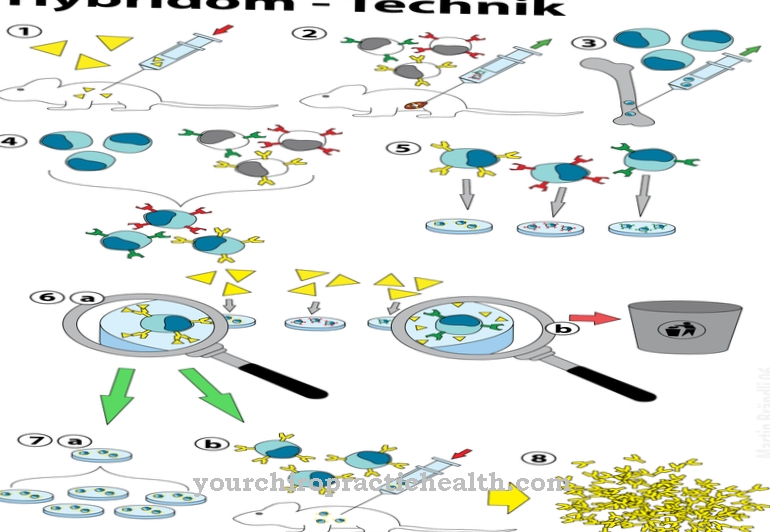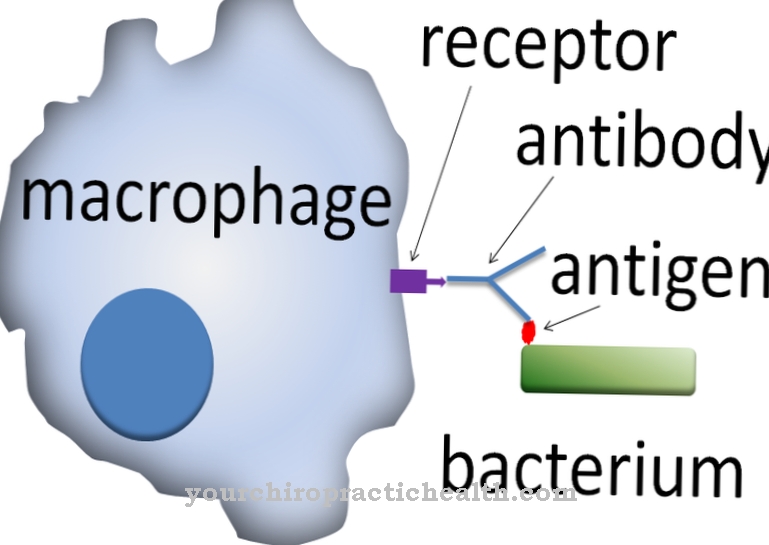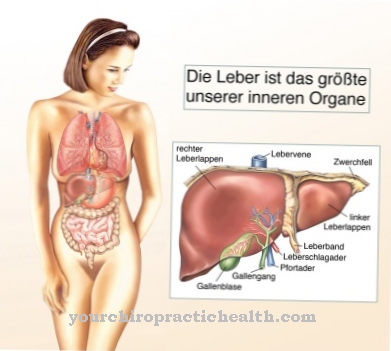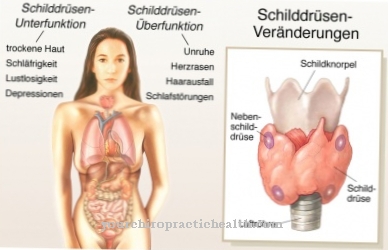The Vitamin B12 belongs to the vitamin B range. It is water-soluble and influences fundamental processes in the body. Vitamin B12 has irreplaceable tasks, especially in the metabolism.
How vitamin B12 works

A deficiency in vitamin B12 is most noticeable when anemia develops. Among other things, vitamin B12 is responsible for the formation of red blood cells. These in turn ensure the transport of oxygen in the body.
In addition, vitamin B12 is involved in cell division and cell regeneration. Vitamin B12 is essential for the formation of the genetic material, the DNA. Just like for the construction of the protective cover around the nerve fibers.
Finally, vitamin B12 enables folic acid to be absorbed into human cells. The transport medium for vitamin B12 is the intrinsic factor (IF). This can be found in gastric juice and transports vitamin B12 into the human blood.
meaning
A deficiency in vitamin B12 often only becomes noticeable very late, as the body can store supplies of this vitamin in the liver for several years. One of the most common symptoms of vitamin B12 deficiency is so-called pernicious anemia (anemia due to vitamin B12 deficiency).
The first symptoms here are increasing general weakness, difficulty concentrating or shortness of breath. Especially when doing sport, those affected notice that they are no longer fully resilient. In the most extreme case, a chronic fatigue syndrome develops.
A lack of vitamin B12 is also noticeable through the increased susceptibility to infections, the sallow, pale complexion and white lips. The reduced oxygen transport rate of the red blood cells also leads to memory impairment and under certain circumstances a deficiency even leads to the suspicion of Alzheimer's disease.
However, the vitamin B12 level should also be checked in people who are depressed and who have increasing nerve pain or sensory disorders in the hands and feet.
It was only recently discovered that older people in particular are increasingly affected by a vitamin B12 deficiency disease. As a result of the age-related changes, the stomach produces less gastric juice.
This in turn reduces the formation of the intrinsic factor and the ability to absorb vitamin B12 is reduced. Here it is important to determine the concentration of vitamin B12 in the central nervous system if there is a suspicion of dementia and the like.
In addition, the vitamin B12 deficiency also plays a role in the widespread diabetes or multiple sclerosis. Vitamin B12 is also administered for psychiatric delusional diseases. Not yet proven - although the research is already in full swing - is the involvement of a vitamin B12 deficiency in the development of diseases of the coronary arteries.
Occurrence in food
Normally, the daily diet is enough to cover the need for vitamin B12. Vitamin B12 is abundantly found in almost all animal foods of animal origin.
Foods such as meat (especially the liver) and eggs or milk are particularly rich in vitamin B12. Vegetarians do not have to worry about an undersupply, as they get enough vitamin B12 from eggs and dairy products.
However, if you forego all animal products, you will get almost no vitamin B12 from your diet. Here, vitamin B12 must be supplied via a vitamin preparation. There is an increased need for vitamin B12 in pregnant and breastfeeding women. This group of people is routinely prescribed vitamin supplements to prevent undersupply at an early stage.












.jpg)



.jpg)










.jpg)
